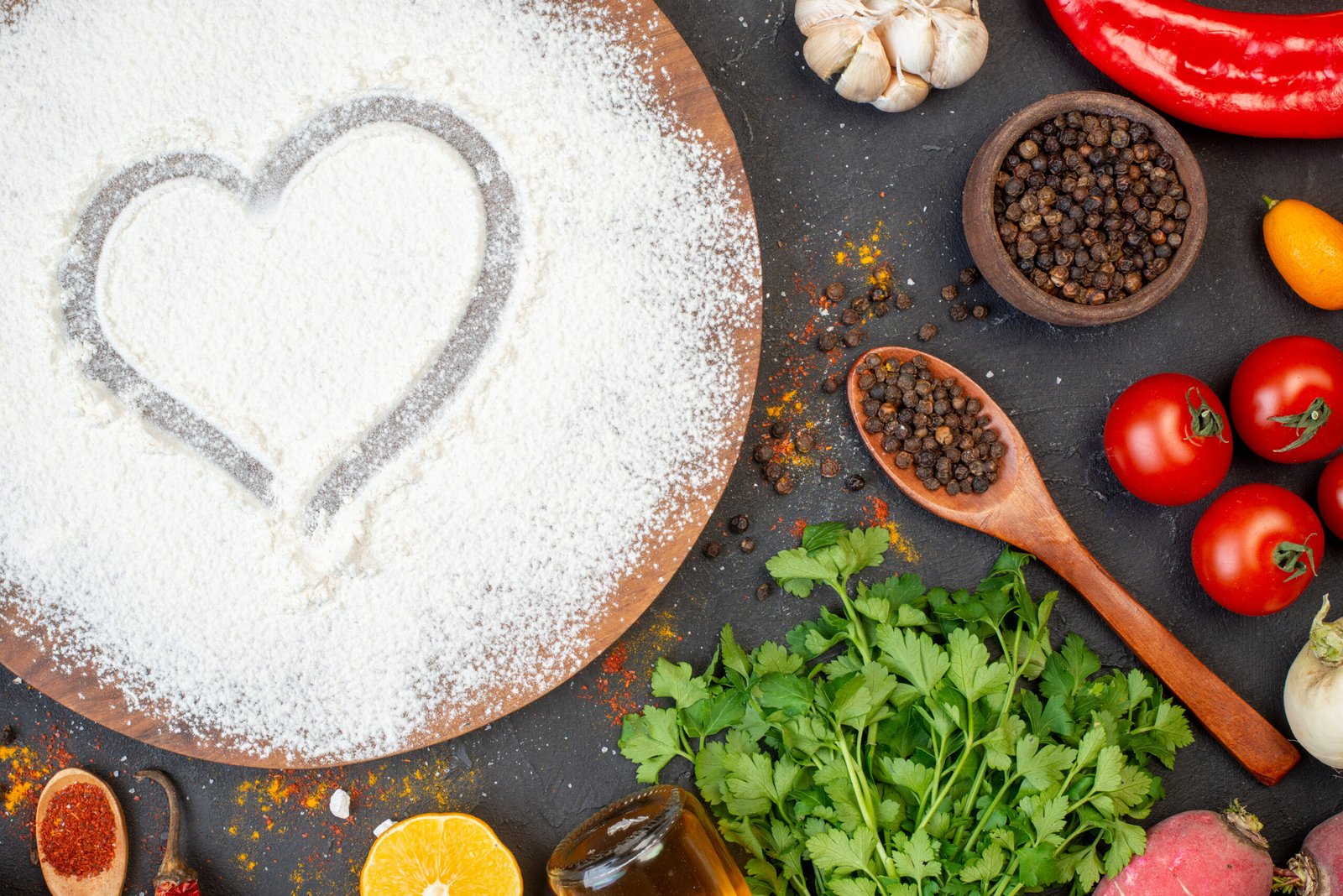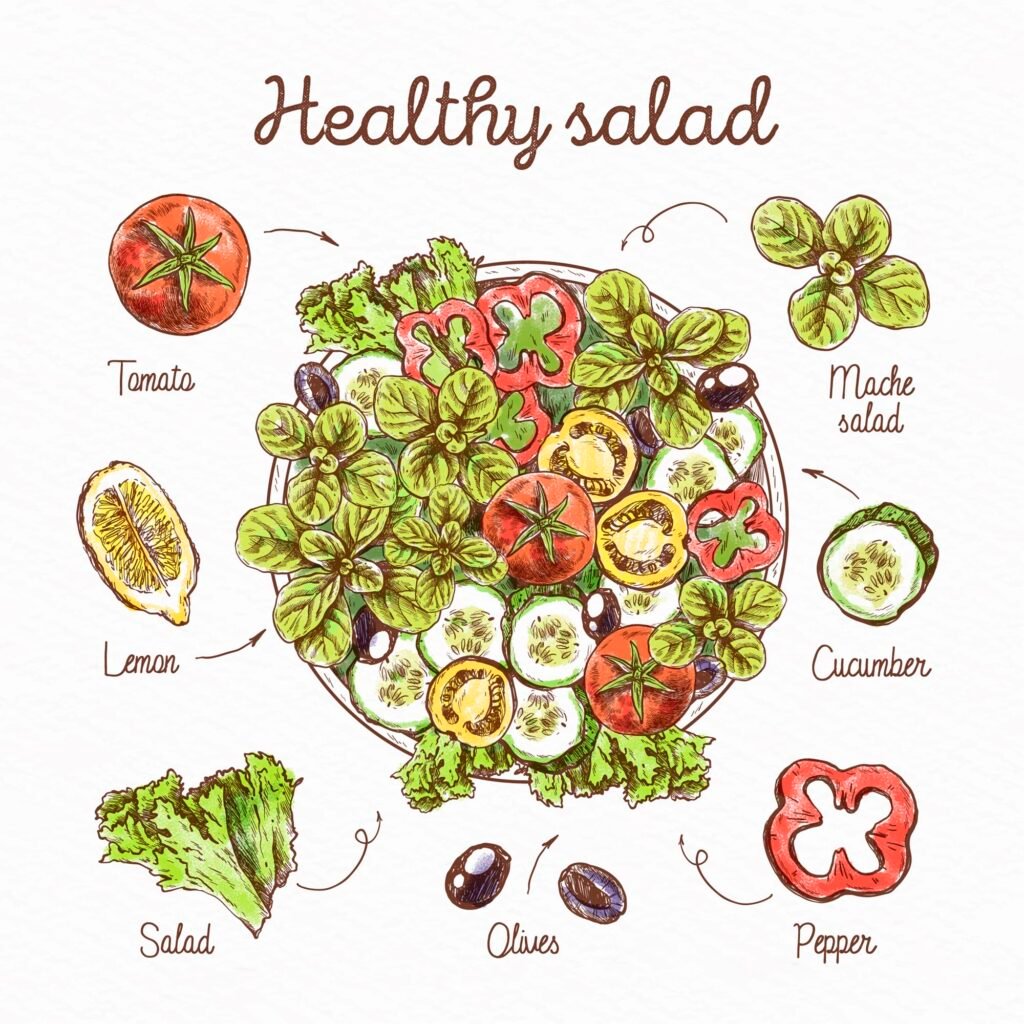Now Reading: National Salt Awareness Week: 5 Reduce Salt, Protect Your Heart
-
01
National Salt Awareness Week: 5 Reduce Salt, Protect Your Heart
National Salt Awareness Week: 5 Reduce Salt, Protect Your Heart

National Salt Awareness Week: Why Reducing Salt Can Save Your Health
Each year, National Salt Awareness Week brings to mind a simple but mighty fact—excessive salt consumption in our diets can quietly harm our health. Although salt makes our food taste good, excessive consumption is strongly associated with high blood pressure, heart disease, kidney issues, and other chronic diseases.
For most of us, salt is such a part of everyday existence with no second thought. We add it to vegetables, put it in curries, or eat it unknowingly with readymade foods, snacks, and restaurant food. But the catch is—our body only needs to have an infinitesimally small level of sodium for proper functioning. Any more than that, the surplus salt becomes a minus rather than a plus.
In this blog post, let’s take an in-depth look at what National Salt Awareness Week is all about, why salt is an increasing health issue globally, too much is how much, and most importantly, simple ways you can cut down on salt without sacrificing flavor. I’ll also include some personal anecdotes and simple tips you can implement today to safeguard your heart and overall health.
What Is National Salt Awareness Week?
National Salt Awareness Week is a yearly international campaign that brings to the fore the risks of high salt intake. Coordinated by health agencies, nutritionists, and activists, the event’s primary aim is to:
- Inform people of the lurking risks of excessive salt consumption.
- Motivate families and individuals to lower the salt in daily dishes.
- Challenge the food industry to reduce the sodium content of processed and packaged foods.
- Empower communities to make healthier lifestyle choices for long-term disease prevention.
The week is celebrated around the world, and each year has a specific theme—such as highlighting secret salt in packaged foods, raising awareness of salt’s effects on children, or encouraging healthier seasoning options.
This campaign isn’t about avoiding salt altogether—it’s about balance and making smart choices.
Why Is Salt Such a Concern?
Salt (sodium chloride) is vital for our body in moderation—it facilitates fluid balance, assists nerve operation, and helps maintain muscle functioning. However, when eaten in excess, it is a silent health menace.
Here’s why salt has come to be an international issue:
1. High Blood Pressure (Hypertension)
Excess salt causes the body to retain water. This extra fluid increases blood volume, which raises blood pressure. Hypertension is often called the “silent killer” because it has no obvious symptoms but significantly increases the risk of heart attacks and strokes.
2. Heart Disease and Stroke
Excessive salt consumption over a long period hardens and constricts blood vessels. This heart and artery strain is one of the main causes of cardiovascular illness globally.
3. Kidney Damage
Your kidneys take their time to remove excess sodium from the blood. But excessive salt can damage kidneys, causing water retention, kidney stones, and in extreme conditions, chronic kidney disease.
4. Fluid Retention and Bloating
Ever felt bloated or experienced swelling in your ankles and feet after munching salty fast food? That’s your body retaining excess water. Over time, this is not only uncomfortable—it’s dangerous.
5. Hidden Calories and Obesity
Salt itself does not contain calories, but many salty foods are processed, fried, or contain unhealthy fats. This makes it harder to stop at a healthy portion, leading to weight gain and obesity.
How Much Salt Is Too Much?
The World Health Organization (WHO) advises adults to have less than 5 grams of salt per day—that is one teaspoon. For kids, it is even smaller, scaled down by age.
But the issue is:
- Ninety percent of adults are taking in 9–12 grams a day—more than twice the maximum safe amount.
- Some 75% of the salt we consume is from processed foods such as bread, sauces, soups, chips, and instant noodles—not from the salt shaker on the table.
- So even if you believe you are using little salt when cooking, you might still be consuming much more than you think.
How to Identify Hidden Salt in Foods
Salt sneaks in plain sight in other names. When reading food labels, beware of:
- Sodium chloride
- Baking soda (sodium bicarbonate)
- Monosodium glutamate (MSG)
- Disodium phosphate
- Sodium nitrate or nitrite
- Some of the most salted ‘hidden’ sources are:
- Packaged snacks (chips, crackers, namkeens)
- Canned soups and sauces
- Instant noodles and ready-to-eat meals
- Bread, pizza, and bakery products
- Processed meats such as sausages and bacon
- Knowing these hidden salts is the first step to eating better.
Practical Tips to Reduce Salt Intake
Reducing salt intake doesn’t require sacrificing flavorful food. You can safeguard your health without deprivation with some clever substitutes and mindful routines.
1. Read Food Labels Carefully
Sodium content should be read before purchasing packaged foods. “Low sodium” indicates 140 mg of sodium or less per serving. Carefully choose and compare brands.
2. Cook at Home More Often
When you prepare food from scratch, you can control the amount of salt that finds its way into your food. Experiment with fresh fruits, whole grains, and legumes.
3. Use Herbs and Spices Instead of Salt
Instead of adding extra salt, season your food with garlic, onion, lemon juice, ginger, black pepper, coriander, cumin, or turmeric. They provide flavor and scent without the health hazards.
4. Restrict Processed Foods
Snacks, boxed sauces, and fast foods are the worst offenders. Phase them out and switch to homemade versions.
5. Select Fresh Over Frozen or Canned
When at all possible, shop for fresh fruits and vegetables rather than canned products that many times have additional sodium added to them as a preservative.
6. Taste Before Adding Salt
I add salt habitually without tasting the food prior. Teach yourself to stop, taste, and then determine whether it’s actually necessary.
My Personal Experience with Reducing Salt
A couple of years back, I was asked by my doctor to reduce salt intake upon detecting borderline high blood pressure during a regular check-up. It seemed impossible to me initially—I was fond of pickles, papads, and chips! However, I began gradually: limiting packaged foods, substituting lemon juice for salt in salads, and seasoning curries with additional spices.
To my surprise, my taste buds readjusted within a matter of weeks. Foodstuffs that had previously been “normal” tasted too salty. I was lighter, not bloated, and had tons of energy. The small change in lifestyle had made a big difference in my general well-being—and it’s evidence that reducing salt is achievable for everyone.
How to Take Action During National Salt Awareness Week
Taking part in National Salt Awareness Week is about making informed decisions that extend further than a week. Following are some tips:
- Self-Audit Your Diet: Monitor the amount of salt you take each day. You may be amazed at hidden sources.
- Spread Awareness: Discuss with friends, family, or social media to inspire healthier lifestyles in your community.
- Cook with Kids: Educate kids on preparing tasty, low-salt meals—it prepares them for healthier lifestyle habits in the future.
- Challenge Yourself: Experiment with a “low-salt week” and observe how your body responds to less sodium.
- Support Policy Changes: Support more transparent food labeling and lower sodium restaurant menus.
Frequently Asked Questions (FAQs)
1. Can I exclude salt altogether?
No, your body requires small quantities of sodium in order to operate. The trick is moderation, not complete avoidance.
2. Is sea salt, rock salt, or Himalayan pink salt better for you?
Though they do carry trace minerals, their sodium levels are nearly identical to regular salt. They must still be taken in moderation.
3. How long does it take to get used to reduced salt?
Usually within 2–3 weeks, your taste buds adapt, and you’ll start appreciating natural flavors more.
4. Is cutting down salt helpful for weight loss?
Indirectly, yes. Reducing salty, processed foods lowers calorie intake, reduces bloating, and supports a healthier diet overall.
5. Who should be most careful about salt intake?
People with hypertension, diabetes, kidney disease, or a family history of heart problems need to be especially cautious.
Final Thoughts
National Salt Awareness Week is more than just a health campaign—it’s a wake-up call to us all to take responsibility for our diet and make small but significant changes. Salt reduction doesn’t have to mean losing flavor; it can mean finding healthier, fresher, and more natural options.
Your heart, kidneys, and overall well-being will appreciate every gram of salt you decide to reduce. So this National Salt Awareness Week, make a promise: check the labels, cook lovingly (not merely with salt), and encourage others to do the same.
Because sometimes less truly is more—particularly when it comes to salt.















